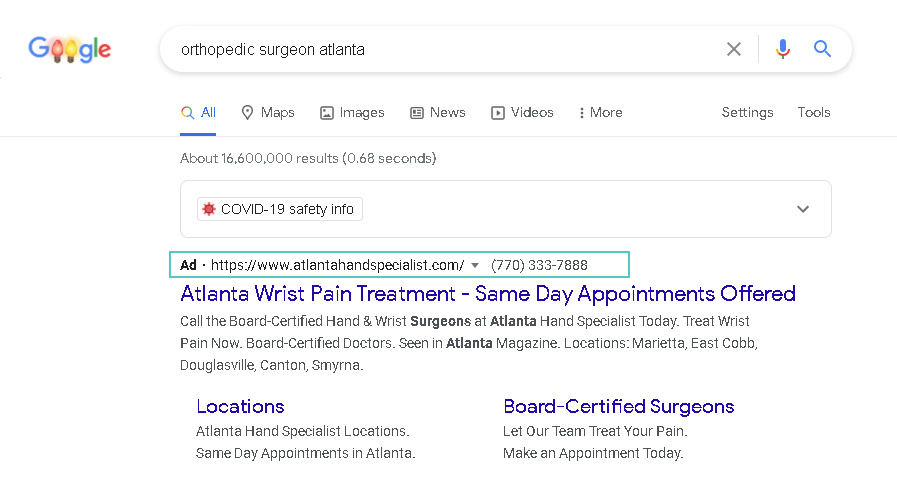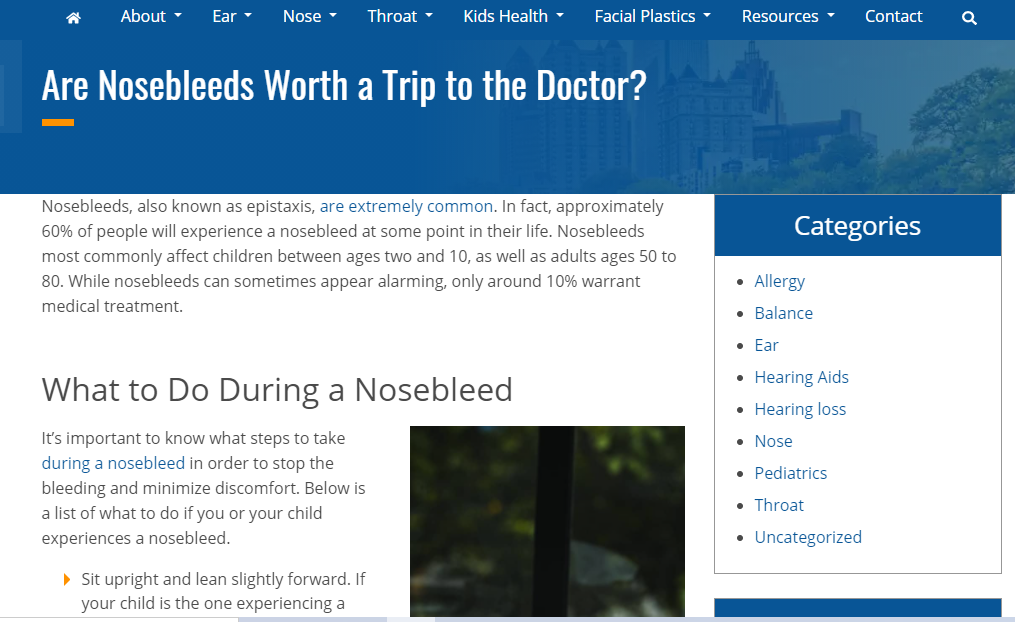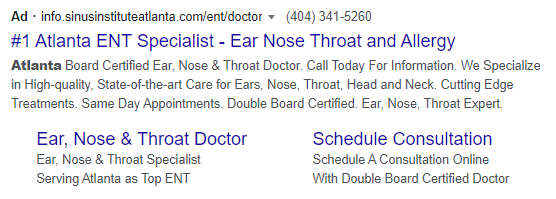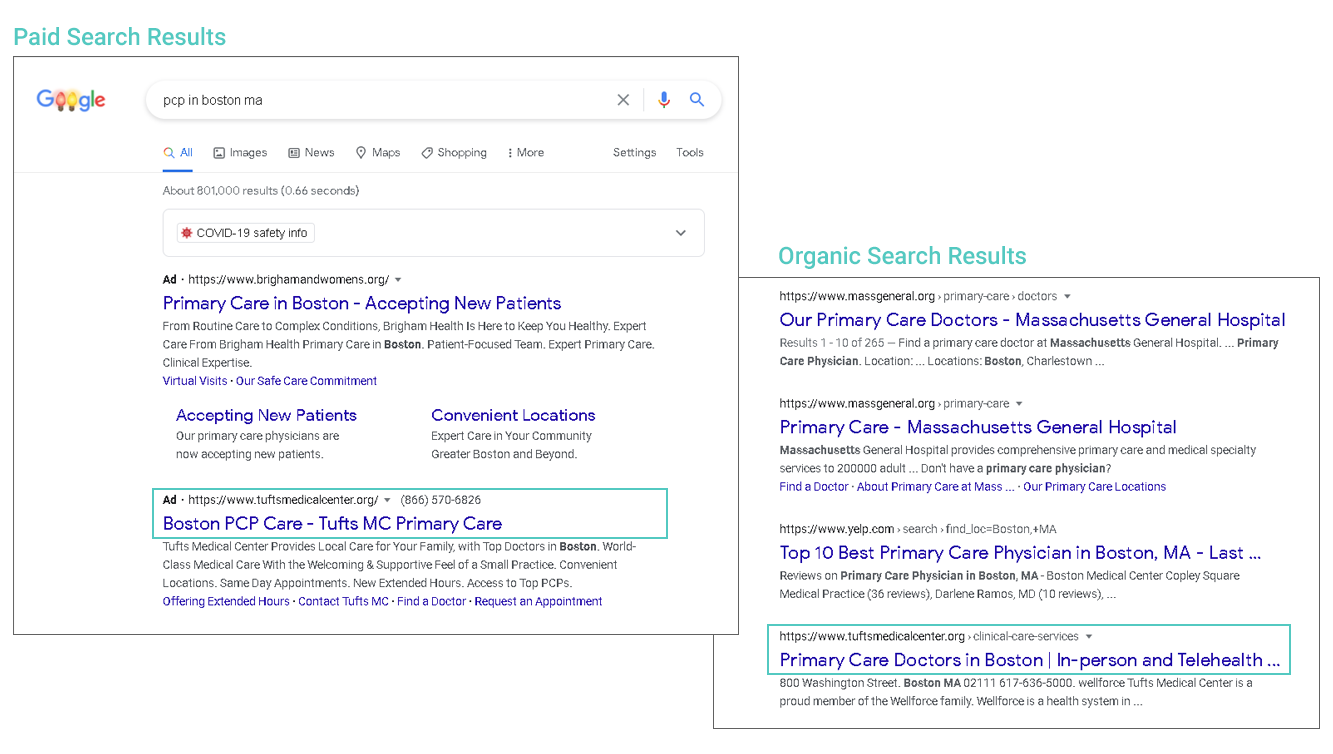When we talk about driving growth with search engine optimization (SEO) and pay-per-click (PPC), we’re talking about ways to get to the top of the search engine results. We’re talking about outranking competitors and outstripping advertisers. We’re talking about winning both organic and paid search engine traffic.
For healthcare marketers, this is really important. According to a recently published report from The Telegraph, some 7% of daily Google searches are health-related. In a world where there are 3.5 billion searches per day worldwide, that translates to an estimated 2.45 million health-related searches per day. Which makes sense when you start to consider the wide variety of reasons someone might “hit the Googles” with a health-related question.
While SEO and PPC have the same goal—get your business to the top of the search engine and drive people to your website—each digital discipline encompasses different means for getting there. Understandably, this can create some confusion among people looking to launch new or updated digital marketing efforts. So we set out to answer some of the frequently asked questions we receive about the relationship between SEO and PPC:
- What’s the difference between SEO and PPC? Where do they overlap and where are they distinct?
- Which one is better and where should I start investing my marketing budget?
- Will SEO or PPC get me results faster? Which strategy is better for the long term?
- Which search engine tactic is easier to implement in-house? And which search engine tactic is better to leave to the digital marketing pros?
A Quick Breakdown of SEO Versus PPC
Lest we make any assumptions about our readers, here’s a quick look at what SEO and PPC actually are:
Search engine optimization (SEO) consists of various strategies, tactics, and best practices that help website and web pages rank highly on search engine results pages (SERPs). We’ve already mentioned how many people conduct health-related searches using engines like Google and Bing. How do search engines decide what content to return for these searches?

Based on a variety of factors, including search language, site authority, and so on, search engine algorithms pore through the outer reaches of the web to decide which content to put on the coveted first page of search results that a person sees when they search for a given term. Oh, and why is it called “organic” search traffic? Because this is an “unpaid” search engine marketing strategy (unlike PPC).
Pay-per-click (PPC) is a search engine advertising model where you pay each time a user clicks on an ad. The ads are tuned to show up in search engine results when specific audiences use specific search language. Businesses that are running a campaign will only pay when a user actually clicks an ad and visits the website. You don’t have to pay for just displaying the ad.

What they pay depends on the competition for specific search terms—higher-volume terms typically have a higher cost per click. In the screenshot below, you can see an example of a PPC ad. While the search result looks and feels “organic,” Marketo has bid on the search term “local PPC advertising,” as reflected in that first search result.
Where SEO and PPC Overlap
At a fundamental level, SEO and PPC overlap in that both organic search results and paid search ads appear on SERPs, often one right after the other. Both share a common goal of driving traffic to a website or a specific landing page. And they both revolve quite heavily around the language that people use to search for content.
RELATED: How To Dominate Google With PPC + SEO
Search intent is another important consideration that factors heavily into both SEO and PPC strategies. Let’s say you’d like to target middle-aged, middle-income suburban males who are strongly considering a vasectomy. Both SEO and PPC strategies can be deployed to meet specific intent (in this case, someone searching Google with the intent of getting more information about or even booking, a vasectomy) to maximize ROI.
As Rand Fishkin states in this Moz whiteboard, any impact that PPC has on organic search is indirect at best. Put simply, how your content ranks for certain keywords isn’t impacted by PPC. Yet the two types of search results (organic and PPC) do appear on the same page, meaning their relationship and interplay isn’t entirely mutually exclusive.
Where SEO and PPC Differ
Put simply, SEO is “free to join,” while PPC is “pay to play.” While most companies invest at least some money into optimized content or even third-party SEO services, how those efforts are reflected in search results is entirely organic—entirely contingent on how the search engine algorithm decides to rank content. In this way, SEO is “free,” relatively speaking.
Yet a comprehensive SEO strategy most often requires an investment in content creation, ongoing optimizations, and regular performance monitoring. What we like to tell our clients is that SEO is a long game, one that may well take six months to a year before generating steady results.

PPC advertising, on the other hand, can be used to get immediate results. After all, as soon as your ad goes live, you can start bringing in leads. With a relatively small budget and a basic understanding of audience and keyword targeting, you can begin generating PPC traffic for high-intent keywords with relative ease.
In this way, PPC ads are like those special passes at theme parks that let “club members” skip the line. Yet generating PPC conversions—people who not only click through to your landing page, but sign up for a consultation, book a surgery, and so on—is something that can’t be bought. Your understanding of your target buyer, the copy they’ll respond to, and your landing page is what determines whether they’ll convert or not.
When It’s Better to Rely on a Robust SEO Strategy
Frankly, SEO is always important to keep in mind. Even for businesses without a bonafide SEO strategy, a steady understanding and application of SEO best practices can go a long way to keeping web properties visible and in good standing on SERPs. Here’s where we recommend focusing your energies:
- Simple, well-organized site structure
- On-page optimization, including headings, interlinking, and metadata, for every web page and subpage
- Passing scores for site speed and usability
More comprehensive SEO strategies are commonly deployed by companies that need one or more of the following:
- Sustained traffic and leads from organic search engine traffic
- To build brand visibility or reputation as an industry leader or expert
Again, it can take six to twelve months to see results from even the most robust SEO strategies. However, it is far easier to stay on top of keyword rankings once you’ve achieved some traction. Why? Because by then you’ll have built out the kind of site authority and content that have a lot of SEO “juice.”
This kind of sustained organic search traffic can be particularly effective when you have a long sales cycle where buyers conduct extensive research on the internet. For a more detailed look at specific SEO strategies and trends, read Top SEO Trends Every Marketer Needs to Know in 2021.
When You Should Consider Investing in PPC
Often, target keywords are so competitive that it would take far too long to capture top rank through purely “organic” strategies. To get to the top in highly competitive keyword categories when you can’t get there organically, why not buy your way to the top?
This is usually why businesses turn to PPC. At least at the outset, companies who want to drive traffic immediately can use PPC campaigns to great effect. This is especially common for companies looking to promote:
- Time-sensitive promotions, discounts, and sales
- New products and services
- New practice locations
Yet, a key advantage of PPC advertising is the ability to reach highly targeted audiences or niches. Using services such as Google Ads, you can get very specific about the demographics you want to target, demographics you know will convert to deliver higher ROI on those campaigns.

Let’s say you need to drive more free consultations for a new body sculpting promotion at your Atlanta location. You can use your PPC advertising platform to serve up targeted ads for people using search language like “Atlanta liposuction consultation,” or “top-rated Atlanta breast augmentation.”
For more information on healthcare PPC advertising strategies, read “6 PPC Best Practices for Attracting More Patients.”
How SEO and PPC Can Be Used Together
A more comprehensive strategy that encompasses both SEO and PPC can be quite effective. In these settings, a certain symbiosis occurs between the two disciplines, usually in three distinct areas:
- Deriving actionable keyword insights: You can use keyword research and metrics from individual campaigns to optimize overall strategy. Whereas you might target certain high-volume keywords for your PPC campaigns, that research might reveal low-volume longer tail keywords more suitable for a sustained SEO campaign.
- Enhance brand reputation and exposure: Many brands leverage both SEO and PPC to corner the market on certain search terms. Branded search terms come to mind. You can imagine why a brand like Coke Zero might want to make sure that they’re the only soda maker appearing above the fold for that family of branded search terms. A combination of SEO and PPC is a great way to increase brand exposure and improves the perception of your brand—all while ensuring competitors don’t pay to display ads on branded keywords you ought to own.
- Use PPC campaign insights to inform content strategy: A big part of PPC is testing the copy and messaging you use for your ads. This is an opportunity to identify high-performing ad copy and create complementary content to support these campaigns. These insights can be used to optimize content with the right keywords, including page content, meta descriptions, and so on. Evaluating the performance of your content and SEO strategy takes time and the impact of changes might not be known for a while. Using PPC ad campaigns to test copy or keywords can get you that information more quickly.

Tufts Medical Center uses both PPC ads and SEO optimized content to dominate the first page of Google.
What Works Best Will Depend on Your Goals
Both SEO and PPC can be very effective marketing strategies. This is especially true in the world of healthcare marketing, where rich audience targeting and well-optimized content can drive serious bottom-line results. However, there is no one-size-fits-all approach. While the majority of organizations we work with do deploy a combination of both SEO and PPC, there are many for whom only one or the other makes business sense.
That’s why it’s so important to first understand how each tactic works—it’s fundamental definitions and most appropriate use cases—before hanging your hat on one or the other. From there, you can develop the kind of sustainable strategy capable of achieving short and long-term business goals. Of course, no matter which mix of SEO and PPC you pursue, the most successful campaigns will be those you constantly review, reassess, and optimize.
Because, despite it all, SEO and PPC are still moving targets at their core. Both are constantly evolving and always at the mercy of algorithmic updates from the Google gods.

